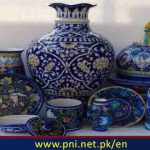HYDERABAD, Mar 22 (APP): The two day international conference on “Paradigm shift in education: Post pandemic approaches in teaching, learning and assessment” (ICPSE- 2022) was concluded here on Tuesday evening with approval of 33 recommendations.
The recommendations approved by the experts will be tabled with federal as well as Sindh government in order to help policy makers to devise effective strategies of teaching, learning and assessment in future.
The concluding ceremony was held in Mumtaz Mirza Auditorium of Sindh Museum Hyderabad which was chaired by the Dean Faculty of Engineering and Technology University of Sindh Prof. Dr Khalil ur Rehman Khoumbhati on behalf of the Vice Chancellor Prof. Dr. Muhammad Siddique Kalhoro.
The Dean Faculty of Education Prof Dr Abdul Sattar Almani, Dean Faculty of Natural Sciences Prof. Dr. Wazir Ali Baloch, Malaysian Professor Dr Ravichandran Moorthy, US Professor Dr David J. Roof and many others were present on the occasion.
The experts suggested designing the precised online and offline general education courses including integration of online thinking, reshaping of teaching objectives and contents, re-engineering of teaching process, reformation of teaching evaluation and standardization of teaching management.
The conference suggested that the university teachers should use the online assessment tools in order to enhance the teaching-learning process in general and quality of assessment in particular.
It was also recommended that shifting to online distant learning should be introduced in future higher education plans besides creating awareness among stakeholders to identify solutions through future research in this area.
The conference hoped that the papers which read in different sessions would help readers to understand the challenges and obstacles of foreign language learning during the COVID-19 pandemic as well as encourage facilitating the online education process. The studies provided at the conference will help educational institutions create an enabling environment in higher education institutions, the conference observed.
According to the recommendations, the results highlighted a significant level of regressive linguistic hegemony of Urdu in Karachi which negatively affected the Sindhi native speakers.
It recommended to improve students’ online learning readiness as per recommendation of papers presented which includes preparing various learning resources, presenting interactive content, and optimizing teaching time with learning activities to increase creativity and understanding, providing met cognitive scaffolding support to help students design strategic plans for task completion, adding collaborative learning activities with heterogeneous groups and providing motivation scaffolding assistance to manage student motivation.
With regard to theory, the participants of the conference suggested revisiting items and adjusting them to conditions in Indonesia to avoid confusion among students in responding to questions.
It also recommended that the teacher must be more watchful toward the students’ e-learning readiness, which was the baseline of our study for establishing a sustainable online learning system that could pay off cumbersome situations like pandemics and new normal life.
The qualitative research facilitates teachers as well as students who are engaged in cooperative learning as it provides the best possible cooperative learning strategies to overcome the issues of cooperative learning and to create the learning environment that motivates learners and encourages them to work collaboratively to achieve cooperative learning outcomes, the recommendations said.
In the changing scenario of education policies and curriculum change, findings recommend that training on constructive feedback is needed for in-service teachers. The study recommended gauging teachers’ content knowledge in languages and mathematics by conducting their subject knowledge test. The study also recommended conducting teachers training in languages (Sindhi/ Urdu) and mathematics. The focus of these trainings should be improvement of teachers’ content, pedagogical and assessment skills.
It is recommended that due to present and post COVID-19 scenario blended learning should be implemented in elementary schools. The teachers should be trained with online teaching tools for students’ responsiveness in learning achievements and results at elementary classroom, the participants observed.
They also recommended overcoming such issues and challenges there should be provision of professional development programs for the teachers to prepare them for future circumstances. It was recommended based on findings that embedding digital and online tools in post pandemic scenario can improve academic performance and quality of instruction as well.
Further, incorporating the traditional methods of assessment with web-based tools can transform the process and results of assessment.
The main issues explored by experts included cost and affordability, connectivity and technology issues, communication barriers, issues pertaining to research/practical component of the programme, gender dimension, duplication/replication in various activities, hurdles in issuance of transcripts/degrees, problems associated in the submission of assignments, timing issues in attending online workshops, computer tutors, the active participation of students in workshops, remuneration issues and fraudulent activities.
It was also recommended that parents of the students should also be trained along with the teachers to have a better understanding and coordinated learning sessions. It was suggested that there should be a policy or proper legislative process document for the regularization of contractual teachers.
The participants of the conference concluded that COVID-19 had a major effect on the children’s learning and mental health that had further widened learning loss of children, strengthened existing class differences and reinforced the gender-based division of labour in the society.
It was concluded that successful formative assessment procedures resulted in students’ effective and improved learning performance. Education administrators should organize programmes to help teachers learn how to use formative assessment in the classroom and make sure it’s done right, based on the specific results, the participants emphasized.
The experts observed that recommendations of the conference will pave the way for the improvement of the verbal proficiency in primary school teachers. They recommended that the teachers who teach computer networking courses should adopt a blended learning approach as a teaching strategy since this approach promotes students’ active participation as well as increases students’ learning outcomes.
The participants of the conference recommended that in order to reduce the addictiveness of social media, parents and teachers should raise students’ awareness about the negative effects of social media on academic development. Internet addiction and physically inactivity is highly prevalent in administrative staff, non-significant association of the internet addiction exists and it should be regarded as serious problem.
They also recommended that teachers must create a friendly learning environment that promoted a deep learning approach among the students and must discourage students who prefer to adapt achieving and surface learning approaches.
It was recommended to continue integrating technology into the classroom’s and home and hold workshops and contests for parents to keep the spirit of learning alive in them, as well as encourage them to use technology.
Parental involvement in decision-making is also recommended in the future because they are the important stakeholders.
The participants of the conference recommended that at least after every five years, teacher professional development training must be organized by emphasizing the components of professional standards and integrated pedagogy that improve the real-life classroom teaching practices, especially making teachers able to develop student involvement activities.
It was also recommended that students should be taught in their native language up to class 12th and English should only be teach as a subject. It was also recommended that social media should be used for educational purposes as well as Social Networking Sites should be expanded and new pages should be created to enhance academic activities.
It was recommended that the government should take serious initiative so that the schools might not be closed and school administration should plan the in-service training programs for teachers to learn new skills and capacities to support students’ transitions back to school. School administrators should also review the syllabus and evaluation system to make healthy teaching learning environment.
It was also recommended that the active participation of stakeholders (parents and teachers) may improve the character-building ethical and social values as per the need of an hour.
Taking into account the new method of learning, the Department of Education should create Information Communication Technology (ICT) training programmes to strengthen teachers’ digital abilities and attitudes, the participants of the conference recommended adding that teachers, on the other hand, should create and strengthen a favourable attitude toward using technology to learn and teach.
It was suggested that Facebook is a significant indicator of psychological well-being and the students are more involved in Facebook addiction; therefore, teaching and learning through this site may also be carried.
There should be a country wide programme to articulate and train teachers according to the demands of the new era, the participants of the conference made their last recommendation.
Follow the PNI Facebook page for the latest news and updates.








